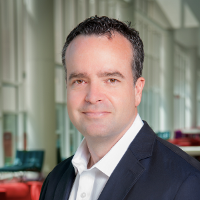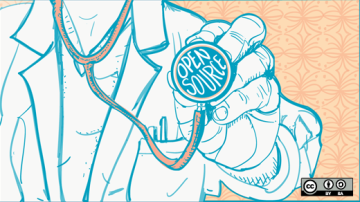
David Brooks is the CEO of Medlio. He is an accomplished entrepreneur and digital health expert. His experience starting and running a primary care medical practice gives him unique insight to the front-line challenges faced by providers. This perspective has led him to several insights for startup ideas that help solve healthcare's challenges with innovative technology. He served as the primary product and business strategist that helped grow MercuryMD from two to 75 employees and led to the company's eventual sale to Thompson Corp. He recently consulted for multiple projects for AT&T's mHealth group. David’s life revolves around his three loving daughters. He is a movie nut who can identify every line from every movie. He’s strictly Paleo and is a Crossfit enthusiast.


Authored Comments
Leonard,
I enjoyed your article very much. I think you provide a very good overview of some of the many challenges of making health information liquid. As much as I agree with your sentiment that 2011 should see health information become truly liquid, I sadly feel that we are still years away.
As you are no doubt aware, freedom of health information has almost nothing to do with technology. Like so many other things in our lives, limitations are dictated by special interest groups, politics, and ultimately money.
Some things are definitely changing for the better: as you pointed out, many key system vendors (both inpatient and outpatient focused) are beginning to support open-platforms... this after years of tenaciously locking that information down to control market-share, and create barriers to new entrants (and innovation). I definitely believe this open-platform trend is being driven by larger forces, typically associated with healthcare reform (and HITECH dollars).
Other things remain the same: consumers (i.e. patients) demand more efficiency, more transparency, better access, you name it... while simultaneously demanding tighter security. While greater liquidity with tighter controls should be everyone's goal, in practicality, it is difficult. In fact, the sharpening of HIPAA and HITECH privacy/security teeth is probably the single greatest inhibitor of information flow. But let's not stop there.
I think a prevalent assumption by consumers (and IT folk as well) is that physicians welcome access to more information. After all, with more information, clinicians can make better, more-informed decisions, right? This is true if you completely remove reality from the picture. Physicians are already overwhelmed with the information they do have. Furthermore, anyone who has seen a doctor in the last 20 years knows that anything in excess of 5 minutes of face-time is unusual. There are ever-more time commitments, as well as financial implications that drive physicians to spend fewer and fewer minutes with their patients. Requiring a physician to track-down more information, and then assimilate it is perhaps too much to ask or expect. Throw liability into the mix and it's a non-starter. "Dr. X, if you had taken the time to query your health information exchange (HIE) portal, you would have known that Dr. Y prescribed such and such treatment. Your failure to perform due diligence has caused irrevocable pain and suffering to my client." In the current climate, I would find it very difficult to fault a physician for such "negligent oversight."
From a technical perspective, HIEs and NHIN help provide necessary middleware to make more use of information stored in disparate databases. Current use-cases require clinicians to pull this information (e.g., make calls through the architecture to various end-points that might house relevant information). In terms of usability, we need to move from a pull-based solution to a push-based one - where clinical providers automatically receive information on their patients whenever new information becomes available, any time, anywhere.
Nevertheless, the bigger issue - in my humble opinion - is to continue to transform the role consumers (patients) play in the healthcare ecosystem. First and foremost, this involves making patients more directly responsible for the cost of their healthcare (I intended to insert a link to the just released study of healthcare costs by the California Healthcare Foundation - CHCF; alas, their website is down at the moment). This is happening... and probably has a lot to do with various favorable trends occurring throughout healthcare.
Smarter, more-fiscally conscious consumers make smarter decisions. They seek out providers who take the time to review their information fully before a visit ... and they pay more for higher quality. Smarter consumers also reward organizations that invest in technology, infrastructure, progressiveness, and ultimately better clinical outcomes. They become a lot more rationale when it comes to things like data security. For instance, if I want companies to take all my information and run data-mining algorithms to predict my risks for various illnesses, maybe I need to find a way to collect and share my information.
At the end of the day, the thing that's going to make this all happen is a liquid, consumer-driven market. Consumers who demand excellence and innovation from their suppliers (providers and technology vendors alike), and are willing to back it up with money get what they want. Instead, we have a market where consumers are uncompromising in their demand of everything. They typically have a sense of entitlement inversely proportional to their contribution to overall costs (and directly proportional to their utilization of healthcare resources). They take responsibility for nothing. They are willing to pay for nothing (generally speaking of course), because they have entrusted private payers and the government with their purchasing power. The government has no clue how to manage this responsibility, and private payers care far less about the perceptions of their customers than their profit margin.
I apologize if I sound overly cynical. The truth is, I am not. I actually believe that we are on the verge of a complete transformation. Bankrupt Medicare and Medicaid systems, skyrocketing health insurance premiums, and the iPhone are all turning the tide. As consumers get larger healthcare bills, they're going to increasingly ask the right questions: how can Netflix give me so much for so little? why is the iPhone just the coolest thing ever... and now the iPad?! These companies didn't just happen. Genius, or not, they represent the cream of the crop. For every one of them, there are thousands that didn't survive. And who decided? We did. We made Netflix and we made the iPhone. Isn't it time we directed our attention to something a little more important than Angry Birds?